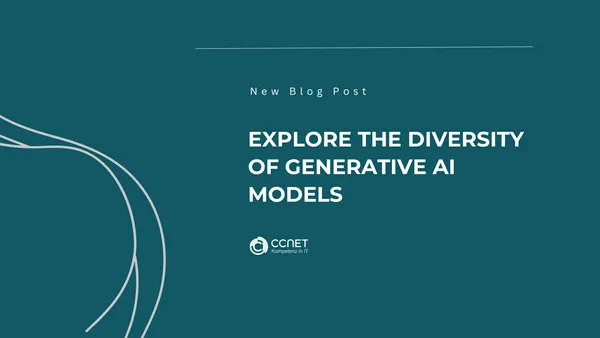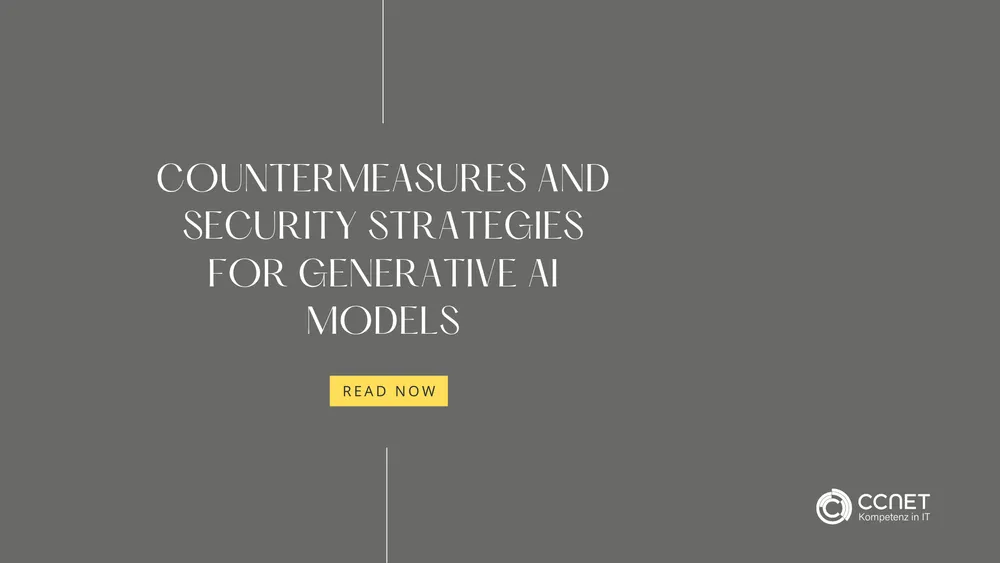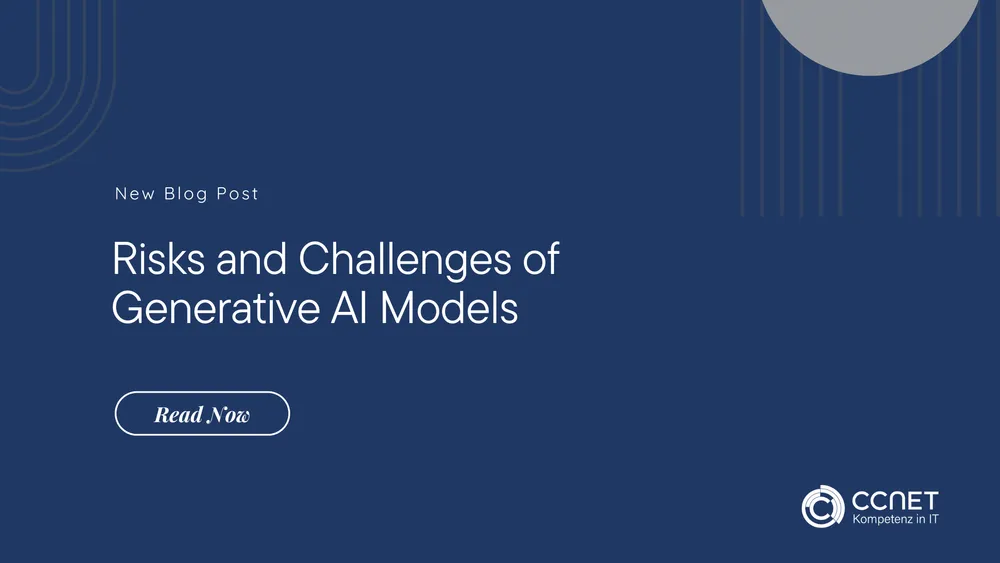
CCNet
May 22, 2024 • 3 min read

Explore the Diversity of Generative AI Models
Generative AI models offer a wide range of applications across various industries and sectors. With their ability to create content like texts, images, and even audio, they can be used in industry and beyond to enhance efficiency and creativity. One notable advantage of these models is their ability to embrace and reflect diversity in their outputs, producing a wide array of content that can cater to different tastes, cultures, and perspectives. In this blog post, we will look at some of the most common applications of these models.
Text Generation and its Applications in Industry
One of the most well-known applications of generative AI models is text generation. Large Language Models (LLMs) specialize in generating texts based on prompts. They are used in a variety of fields, including:
-
Chatbots and Personal Assistant Systems: LLMs enable the creation of chatbots that can conduct complex conversations. These bots can be used in customer service, online consultations, or for the automation of routine tasks.
-
Text Editing and Proofreading: LLMs can not only generate text but also edit it. This includes spelling and grammar checking, paraphrasing, and text summarization.
-
Programming Code: LLMs can generate and edit programming code, which is helpful in software development. They can assist developers with autocomplete, creating test cases, or analyzing code.
Image and Audio Generating Models
Besides text generation, there are generative AI models that focus on creating images and audio. These models have applications in art, design, film production, and even medicine. Their versatility spans areas such as virtual reality, medical imaging, and personalized advertising, making them an indispensable tool for a wide range of industries.
-
Image Generation: These models can create realistic images from simple descriptions. They are used in advertising, the fashion industry, and for creating visual content for social media.
-
Audio Generation: Generative AI can also create audio content. These models are used for creating music, sound effects, and speech synthesis.
Multimodal Models and Their Applications
Multimodal models are particularly interesting because they can combine several types of data. These models can process text, images, and audio, allowing them to be used in various fields. Their ability to integrate different data sources and understand complex relationships makes them a versatile tool for research and application development.
-
Image-Text Combinations: Multimodal models can create image descriptions or generate images based on text queries. This is useful for e-commerce, design, and other industries that rely on visual content.
-
Audiovisual Applications: These models can combine audio and video, making them ideal for creating content for film, television, and video games.
Conclusion
Generative AI models open up a wide range of possibilities across various industries. From text generation to image and audio production, they offer businesses and individuals tools to develop innovative and creative solutions. In future blog posts, we will explore the opportunities and risks associated with this technology and how companies can use it effectively. It is undeniable that generative AI models have the potential to improve existing processes and unlock new business opportunities. This is why it is crucial to stay informed about the latest developments and understand their impact to make the most of them.
Further information can be found here: generative ai models
FAQs about generative AI models
In which areas is text generation used by generative AI?
Text generation is used in chatbots, text editing, summaries, and software development through code completion and analysis.
What role does generative AI play in image generation?
It generates realistic images from text descriptions and is used for visual content in advertising, fashion, and social media, among other areas.
How is generative AI used for audio production?
It is used to generate music, speech synthesis, and sound effects, for example in entertainment or for assistance systems.
What are multimodal AI models?
Multimodal models process multiple types of data, such as text, images, and audio, simultaneously, enabling versatile applications.
In which areas are multimodal AI models particularly useful?
They are used, for example, for image-text combinations in e-commerce or for audiovisual content in films and games.
Why are generative AI models considered so versatile?
Their ability to automatically create different types of content provides solutions for a wide range of industries and increases both efficiency and creativity.


